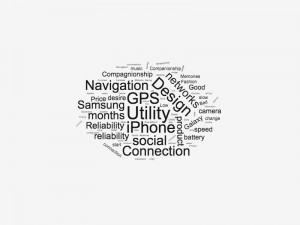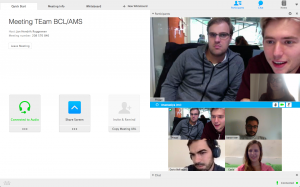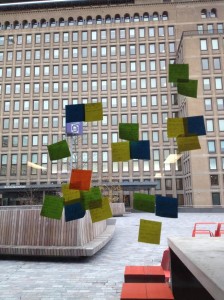Unfortunately the love letters we were receiving weren’t for us personally, but for the 27 different smartphones of our respondents. We received letters from different continents and countries (Bangalore, Barcelona, Amsterdam) and we used these letters as a research method to – literally – discover more about people’s feelings towards their devices. We were helped a lot by a group of students from the Media College, whom visited the Lab, and got an introductory assignment while visiting. They wrote some very honest and entertaining letters for us.
But this method wasn’t the only method in our planning. We did a good amount of literature research about product attachment (the theory around people’s relationship with objects), and we learned things about insustainabilities in the behavior of the users in general. For instance: this table categorizes different types of users and their (in)sustainable behavior:
While reading all about the theory, time passed, and we still hadn’t performed one of our more important methods: the focus group. This was the moment we could really ask people specific questions about their attitudes towards recycling their phone, or about why they got rid of the device in the first place. We managed to speak to 10 different people and asked them some around 10 in-depth questions about their smartphone use. One session took place with the team from Barcelona whom are also working on our project.
After this session the time for data collection was over. We had to bring all the data together and start making sense. Finding patterns to extract problems or inefficiencies in the attitudes of consumers, our main challenge for this sprint. Our method for defining these frictions: all team members gathered around the data and individually wrote down the different frictions they detected. In the end this would lead to a cloud of post-its that we would group, and discuss.
After about an hour and a half of discussing we were able to formulate 3 frictions that we saw as the most evident. Also we tried to choose the frictions that carried the possibility for us to really make an impact with later solutions (for example: we can’t pretend to solve the insustainable fact that people drop and break their phone sometimes). Ultimately we came to these 3 main problems, problems we extracted from 3 weeks of research:
1. People don’t know where to bring their old smartphones for recycling.
2. People aren’t motivated to put an effort into recycling their old smartphones.
3. The most common reasons for people to change their device is because of speed and unreliable battery life.





